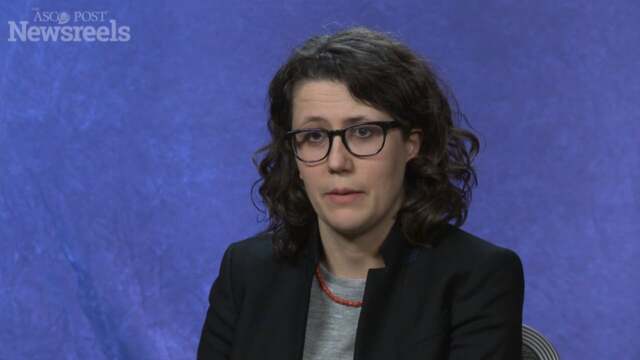Tracey L. Evans, MD, on NSCLC: Combined-Modality Therapy
2017 Multidisciplinary Thoracic Cancers Symposium
Tracey L. Evans, MD, of the University of Pennsylvania, discusses the data supporting use of chemotherapy with radiation in locally advanced non–small cell lung cancer, targeted treatments and immunotherapy, and some of the controversies now debated.
Douglas E. Wood, MD, of the University of Washington, discusses the importance of broad access to and education about lung cancer screening—now approved for people at high risk for the disease—and the need for expanded criteria for screening eligibility.
Shraddha M. Dalwadi, MBA, MD Candidate in the class of 2017 at Texas A&M Health Science Center, discusses findings from a SEER database study that showed African Americans and American Indians with stage I non–small cell lung cancer were less likely to receive definitive treatment and had lower odds for survival (Abstract 9).
Maximilian Diehn, MD, PhD, of Stanford School of Medicine, discusses promising clinical applications of circulating tumor DNA in patients with thoracic malignancies: noninvasive detection of resistance mechanisms to targeted agents and treatment response assessment.
Kamran Ahmed, MD, of the H. Lee Moffitt Cancer Center and Research Institute, discusses results from a small study of pneumonitis in patients who received thoracic radiotherapy within 6 months of anti–PD-1 therapy, anti–PD-L1 therapy, anti–CTLA-4 therapy, or some combination of these drugs (Abstract 10).
Zofia Piotrowska, MD, of the Massachusetts General Hospital Cancer Center, discusses heterogeneity and variation in resistance mechanisms among EGFR-mutant non–small cell lung cancer patients with at least one postresistance biopsy (Abstract 1).





